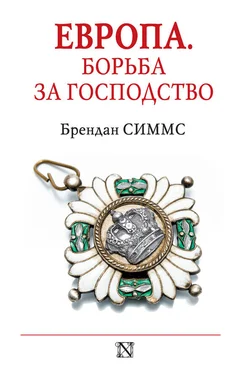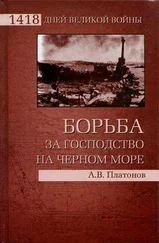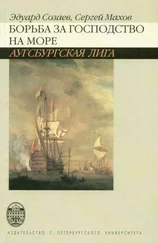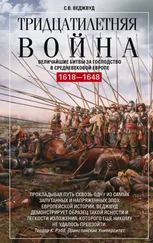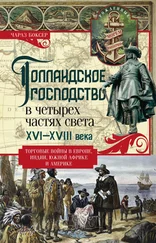Kagan, Dangerous nation, p. 357.
Mike Sewell, ‘Humanitarian intervention, democracy, and imperialism: the American war with Spain, 1898 and after’, in Simms and Trim (eds.), Humanitarian intervention, pp. 303–22 (quotation p. 303), and Paul T. McCartney, Power and progress. American national identity, the war of 1898, and the rise of American imperialism (Baton Rouge, 2006), quotation p. 272.
Tony Smith, America’s mission. The United States and the worldwide struggle for democracy in the twentieth century (Princeton, 1994), p. 41.
Keith Wilson (ed.), The international impact of the Boer War (Chesham, 2001).
В сражении при Саратоге в 1777 г. американские революционеры одержали победу над британцами, что побудило короля Франции Людовика перейти к открытой поддержке колонистов; в дальнейшем выражение «момент Саратога» вошло в политический лексикон для обозначения подобного описанному вмешательства третьей стороны в двусторонний конфликт . Примеч. ред.
Warren Zimmermann, First great triumph. How ve Americans made their country a world power (New York, 2002), p. 446. I am grateful to Charles Laderman for this reference. See also T. G. Otte, The China Question. Great power rivalry and British isolation, 1894–1905 (Oxford, 2007).
Gordon A. Craig, Germany, 1866–1945 (Oxford, 1978) p. 313.
Phillips Payson O’Brien, British and American naval power. Politics and policy, 1900–1936 (London, 1998), pp. 26–7.
William Mulligan, ‘From case to narrative: the Marquess of Landsdowne, Sir Edward Grey, and the threat from Germany, 1900–1906’, International History Review, 30, 2 (2008), p. 292.
Matthew Seligmann, ‘Switching horses: the Admiralty’s recognition of the threat from Germany, 1900–1905’, International History Review, 30, 2 (2008), pp. 239–58, and Matthew Seligmann, ‘Britain’s great security mirage: the Royal Navy and the Franco-Russian naval threat, 1898–1906’, Journal of Strategic Studies, 35 (2012), pp. 861–86.
Christopher Ross, ‘Lord Curzon, the “Persian Question”, and geopolitics, 1888–1921’ (Ph.D. dissertation, University of Cambridge, 2010).
Matthew Seligmann, ‘A prelude to the reforms of Admiral Sir John Fisher: the creation of the Home Fleet, 1902–3’, Historical Research, 83 (2010), pp. 506–19, especially pp. 517–18.
G. R. Searle, The quest for national ef ciency (Berkeley, 1971). For the role of foreign policy in British electoral politics see T. E. Otte, ‘“Avenge England’s dishonour” By-elections, parliament and the politics of foreign policy in 1898’, The English Historical Review, CXXI, 491 (2006), pp. 385–428.
Mathew Johnson, ‘The Liberal War Committee and the Liberal advocacy of conscription in Britain, 1914–1916’, Historical Journal, 51. (2008), who cites the National Service Journal of November 1903.
Paul Readman, ‘Patriotism and the politics of foreign policy, c. 1870 – c. 1914’, in William Mulligan and Brendan Simms (eds.), The primacy of foreign policy in British history, 1660–2000. How strategic concerns shaped modern Britain (Basingstoke, 2010), especially, pp. 264–5.
Richard H. Collin, Theodore Roosevelt, culture, diplomacy and expansion. A new view of American imperialism (Baton Rouge and London, 1985), pp. 101–2. I thank Quinby Frey for this and many other references on US history.
James Ford Rhodes, The McKinley and Roosevelt administrations, 1897–1909 (New York, 1922), p. 249.
Frederick Marks III, Velvet on iron. The diplomacy of Theodore Roosevelt (Lincoln, Nebr., and London, 1979), pp. 6–10, 38–47 and 172–3. For a different view see Nancy Mitchell, The danger of dreams. German and American imperialism in Latin America (Chapel Hill and London, 1999), pp. 216–28 passim (quotations pp. 75–6).
James R. Holmes, Theodore Roosevelt and world order. Police power in international relations (Washington, DC, 2006), passim, especially pp. 70 and 110. For a case study see Stephen Wertheim, ‘Reluctant liberator: The odore Roosevelt’s philosophy of self-government and preparation for Philippine independence’, in Presidential Studies Quarterly, 39, 3 (2009), pp. 494–518.
Marks, Velvet on iron, p. 8. О возникновении антинемецкого поколения в Великобритании и США на рубеже столетий: Magnus Brechtken, Scharnierzeit, 1895–1907. Persönlichkeitsnetze und internationale Politik in den deutsch-britisch-amerkanischen Beziehungen vor dem Ersten Weltkrieg (Mainz, 2006), pp. 374–6.
Stuart Anderson, Race and rapprochement. Anglo-Saxonism and Anglo – American relations, 1895–1904 (London and Toronto, 1981), pp. 66–9 (quotation p. 67).
Jonathan Steinberg, ‘The Copenhagen Complex’, Journal of Contemporary History, 1, 3 (1966), pp. 23–46, especially pp. 29–30.
Howard K. Beale, Theodore Roosevelt and the rise of America to world power (Baltimore, 1956), p. 236 I thank Charles Laderman for this reference.
Geyer, Russian imperialism, p. 221.
Josh Sanborn, Drafting the Russian nation. Military conscription, total war and mass politics, 1905–1925 (DeKalb, Ill., 2003), pp. 25–9.
Jan Rüger, The great naval game. Britain and Germany in the Age of Empire (Cambridge, 2007), pp. 234–40.
William Philpott, ‘Managing the British way in warfare: France and Britain’s continental commitment, 1904–1918’, in Keith Neilson and Greg Kennedy (eds.), The British way in warfare. Power and the international system, 1856–1956. Essays in honour of David French (Farnham, 2010), pp. 83–100.
T. G. Otte, ‘“Almost a law of nature”? Sir Edward Grey, the Foreign Of ce, and the balance of power in Europe, 1905–12’, in Erik Goldstein and B. J. C. McKercher (eds.), Diplomacy and Statecraft. Special Issue on Power and Stability. British Foreign Policy, 1865–1965, 14, 2 (2003), pp. 77–118 (pp. 80–81).
Neitzel, ‘Das Revolutionsjahr 1905’, in Kusber and Frings (eds.), Das Zarenreich, das Jahr 1905 und seine Wirkungen, pp. 43–4.
Annika Mombauer, ‘German war plans’, in Richard F. Hamilton and Holger H. Herwig (eds.), War planning 1914 (Cambridge, 2010), pp. 48–79 (quotation p. 54).
Albrecht Moritz, Das Problem des Präventivkrieges in der deutschen Politik während der ersten Marokkokrise (Berne and Frankfurt am Main, 1974), pp. 144 and 280–84.
Michael Epkenhans, Die wilhelminische Flottenrüstung, 1908–1914. Weltmachtstreben, industrieller Fortschritt, soziale Integration (Munich, 1991). О возможности массовой мобилизации Великобритании: G. C. Peden, Arms, economics and British strategy. From Dreadnoughts to hydrogen bombs (Cambridge, 2007), pp. 1–16.
Читать дальше
Конец ознакомительного отрывка
Купить книгу
